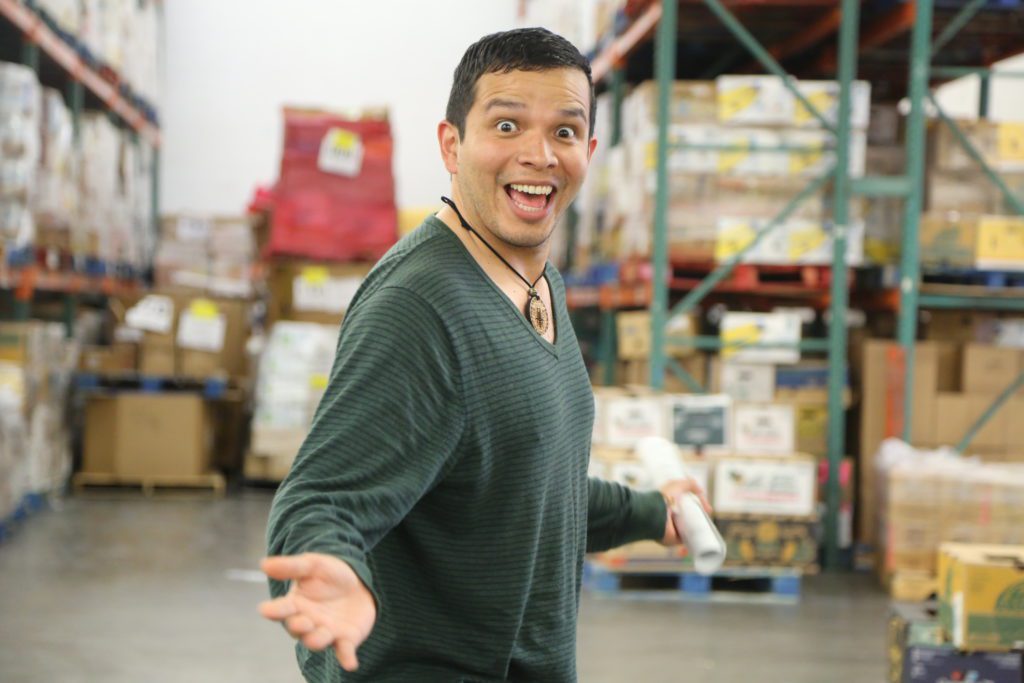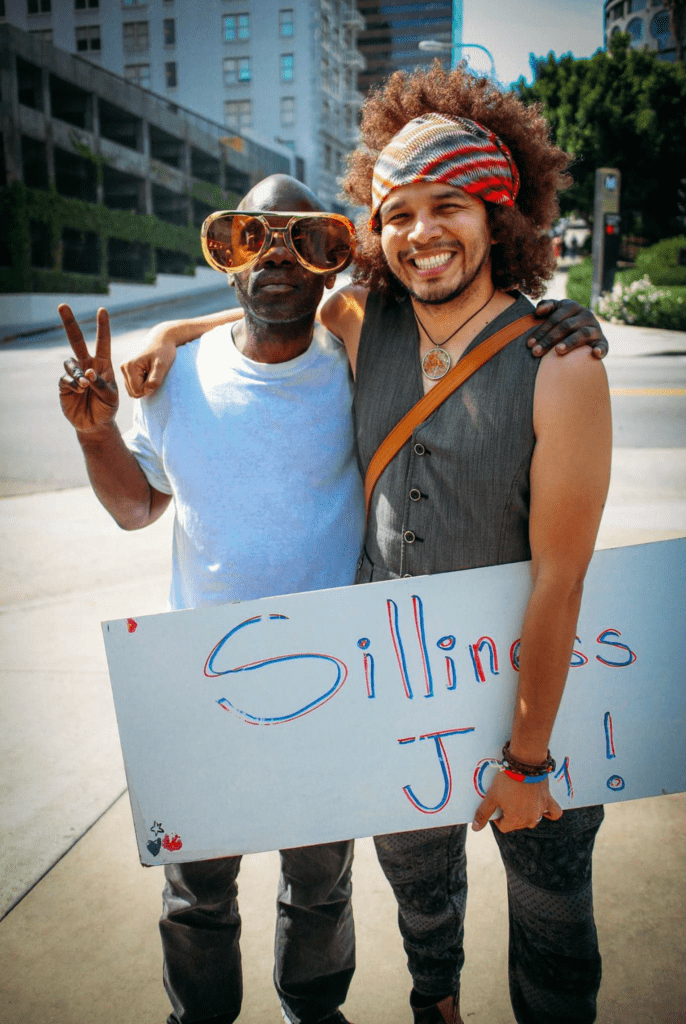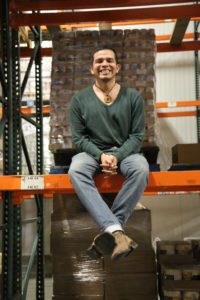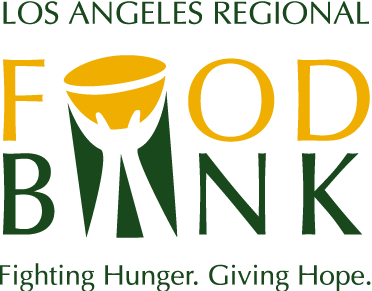Hunger Hero: Manny
Manny Torres was about to turn 35 when he decided he’d celebrate his birthday by helping others. He had received a notification from Facebook about hosting an online fundraiser and, being a busy grad student, he figured that would be the easiest thing to manage, with a built-in way to get the word out to his social circle. “I don’t just want to help people in need,” he said. “I also want to help change the consciousness and perspectives of the people who get involved.”
 Having volunteered with a hunger relief organization in the past, Manny did a search on Facebook for other organizations serving people facing food insecurity. He found the Los Angeles Regional Food Bank’s page and was struck by an image of a young girl receiving food assistance. “I didn’t know much about the Food Bank,” he said. “But I figured that if they were helping people like that little girl, then I’d like to get involved.”
Having volunteered with a hunger relief organization in the past, Manny did a search on Facebook for other organizations serving people facing food insecurity. He found the Los Angeles Regional Food Bank’s page and was struck by an image of a young girl receiving food assistance. “I didn’t know much about the Food Bank,” he said. “But I figured that if they were helping people like that little girl, then I’d like to get involved.”
Manny says he created the Facebook fundraiser three weeks before his birthday with a public goal of $1,500 and a personal goal of $1,000. “It was really cool and effortless,” Manny says. “I did the write-up, invited my friends and pretty much forgot about it for awhile.”
But then the donations started rolling in.
“I promised everyone who donated that I would pay it forward with an act of kindness,” Manny said. “At first I was messaging everyone to say ‘thank you,’ but eventually there were so many donations that I couldn’t keep up! It felt very fulfilling.”
Manny was able to exceed his goals and raised $1,635 for the Food Bank. Since the Food Bank can provide four meals for every dollar donated, this is the equivalent of 6,540 meals.
“The biggest thing I’ve learned from doing things like this is compassion,” Manny said.
“So much of my life has been goal-oriented and focused on my own situation.” Manny’s family immigrated to the United States from Peru when he was young. He is the oldest of two boys and was the only English speaker in his family for the first part of his life. “I was kind of the face of my family and responsible for providing to some extent,” he said. “I was the first to go to college and thought I would go into corporate law and keep focusing on what I could earn.”
 Over time Manny noticed a deep discomfort within himself. He says he remembers going out with friends and spending $60 to $70 on drinks and then walking around LA and seeing people sleeping on the street. “I thought, ‘this ain’t right.’ I should be helping.” Manny thinks people tend to become desensitized to the issues of hunger and homelessness as a function of survival because it can be so overwhelming. But actually facing these issues helps not only to humanize people who are struggling but to edify those who are doing the helping. “I felt like I was seeing their history in their eyes,” he said.
Over time Manny noticed a deep discomfort within himself. He says he remembers going out with friends and spending $60 to $70 on drinks and then walking around LA and seeing people sleeping on the street. “I thought, ‘this ain’t right.’ I should be helping.” Manny thinks people tend to become desensitized to the issues of hunger and homelessness as a function of survival because it can be so overwhelming. But actually facing these issues helps not only to humanize people who are struggling but to edify those who are doing the helping. “I felt like I was seeing their history in their eyes,” he said.
Manny started a meet-up group called “Silliness and Joy,” for which he plans to seek non-profit status once he finishes grad school in December. Members meet for a drink in Downtown LA and then distribute food donations, clothes and toiletries to neighbors currently facing homelessness. “I know I can’t fix big problems like hunger and homelessness myself,” he says. “But I can help provide pathways for people to collaborate and address these things together.”
The story of the Food Bank is a story about how even just one person can make a lasting impact.
When it started in 1973, the Food Bank was made up of the efforts of one man, a chef, who noticed the growing problem of hunger in Pasadena. Tony Collier began the work of acquiring food that was going to go to waste and then redistributing that food to neighbors facing food insecurity. Today, because of supporters like Manny, the Food Bank serves more than 300,000 people on a monthly basis- proof that a small idea can take root, grow and become hugely impactful.
Thank you, Manny. You are a hunger hero!


